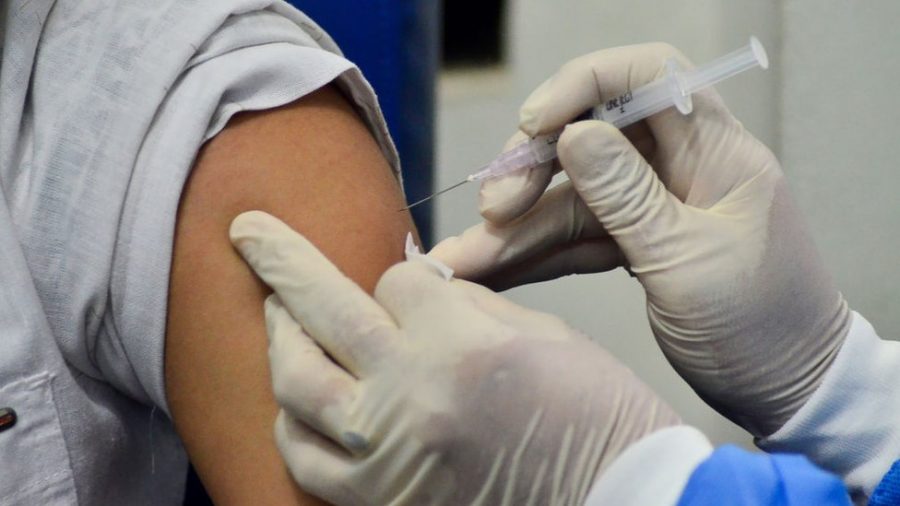COVID-19 vaccine greeted with appreciation and skepticism
The COVID-19 vaccine has been extremely anticipated due to the prolonged outbreak, and many people are looking forward to being able to receive the vaccine. However, others are weary of the vaccine due to its record setting production speed. Because it was developed so quickly, there are lots of unknowns about the vaccine, and no one is really certain as to how it will affect humans long term despite its already known minor side effects and that it comes with allergic reaction warnings.
The History of Vaccines from the College of Physicians of Philadelphia states, “Vaccine development is a long, complex process, often lasting 10-15 years and involving a combination of public and private involvement.” This is alarming to some people because vaccines typically take decades of extensive research and trial-and-error to be developed.
Some people think that once they’re vaccinated, they will not need to wear a mask unless they are in confined spaces with others who have not been vaccinated. Olympic Heights English teacher Ms. Sarah Davies stated that she plans “…on getting vaccinated myself and won’t be wearing a mask unless I’m in a confined space with non vaccinated people.”
When people go in public places, not only will they not know who has been vaccinated, but other people have no idea who has been vaccinated. Due to this uncertainty, Ms. Davies plans to wear her mask when she is unaware if others around her have been vaccinated. This can cause a lot of confusion due to all of the risks surrounding the vaccine, such as the Pfizer allergic reaction warnings.
Pfizer has issued an allergic reaction warning to the vaccine, which doesn’t settle people’s nerves. Although the vaccine was authorized for emergency use on December 11, 2020, doctors are still responsible for tracking anaphylaxis caused by the vaccine. Health officials in England have recommended that people who have severe allergies should not get the vaccine; however, the United States Centers for Disease Control and Prevention (CDC) announced that people who have a history of severe allergic reactions can get the vaccine but should consult with their doctors first and be monitored for about 30 minutes after they are injected with the vaccine.
The United States Food and Drug Administration (FDA) has approved the vaccine and announced that it is safe and effective, yet a 24-year-old participant named Yasir Batalvi told CNBC about “Moderna’s 22-page consent form warning of side effects ranging from nothing at all to death.” Batalvi warns that the side effects after the second shot are flu-like, as he experienced soreness and pain around the area of the vaccine, chills, fatigue, and a low-grade fever.
After experiencing varying side effects, Batalvi reached out to trial doctors who told him side effects like these are not concerning. Just like the flu vaccine, people are expected to have side effects following the injection. Even though some trial participants reported COVID-19 and flu-like symptoms, it is impossible to contract COVID-19 from its vaccine since Pfizer and Moderna did not use the live virus in the vaccine.
Agreeing with Batalvi, OH senior Mario Gutierrez said that he is very concerned about the vaccine and what the long term effects of it are. Gutierrez’s biggest concern is “ a fear of some type of reaction with their body.” He knows that scientists will not really know if the vaccine is as effective as they think until a high number of people get it and after some considerable time. Gutierrez is also concerned because people who do not have extreme knowledge on medicine and infectious disease do not really know how the vaccine works, and the potential risks.
In Florida and many other states, the COVID-19 vaccine will be distributed in phases. Florida will prioritize vaccinating people who are 65 years old and older, those with high risk medical conditions, and healthcare workers. On December 16, 2020, Governor Ron DeSantis announced that the National Guard and medical personnel have begun giving out the vaccine to residents and staff members at long-term care facilities. The rest of the population of Florida can expect to be able to get the vaccine in the near future.









